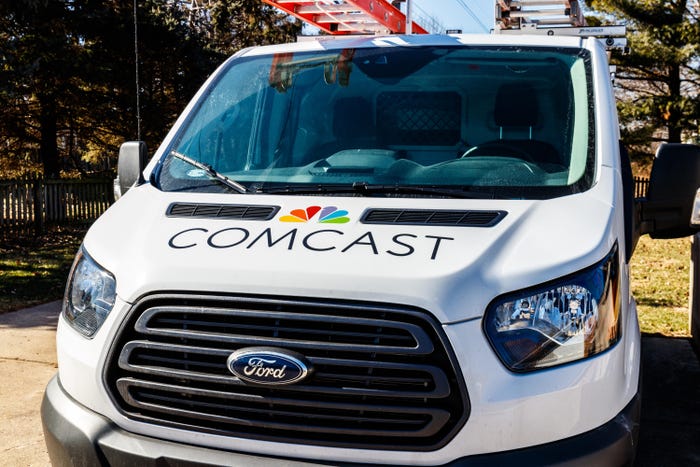New York lawmaker seeks to streamline municipal broadband builds
A bill in the New York Senate would streamline the process for municipalities to approve broadband projects. It's one example of how some states are working to allow and expedite municipal broadband builds in the run up to BEAD.

A New York State Senator is making a public push for the state legislature to pass a bill that would streamline municipal broadband projects. In an op-ed for local publication Syracuse.com this week, the lawmaker, Sen. Jeremy Cooney, a Democrat representing Rochester, New York, promoted his Broadband Deployment Assistance Act of 2024 (S9134), saying that "realizing universal broadband access in our state requires an aggressive expansion of municipal broadband, coupled with efforts to make it easier for municipalities to build out new networks."
The bill in question, introduced by Cooney last month, would essentially streamline the permitting process for municipal broadband projects. As per the legislation, the act would "amend the general municipal law, in relation to requiring substantially similar permits for broadband deployment to be processed together at the same time and on an expedited basis."
The text of the bill specifically refers to the $42.5 billion BEAD program as the reason for the legislation: "The State's Broadband Equity, Access, and Deployment Program proposal identified streamlining the permitting process as a critical component in the program's success. Consistent with these findings, the measures set forth in this legislation will accelerate broadband deployment, to the benefit of the people of the state."
New York, under Governor Kathy Hochul, created a $1 billion ConnectALL program to close the state's digital divide, which includes $228 million for the state's Municipal Infrastructure Program, designed to help localities build and maintain public broadband networks. "To date, four municipalities have received grants from the program and have seen successful preliminary results," said Cooney in his op-ed. However, Cooney argues the state needs to "adopt a sense of urgency as we implement the Municipal Infrastructure Program."
As of this writing, the bill has one co-sponsor, Republican Sen. Rob Rolison, and now sits with the Senate Energy and Telecommunications Committee. In his op-ed, Cooney made a push to pass the bill before New York's legislative session ends next week, on June 6. He also pointed to actions by the state's incumbent provider, Charter, as a reason for the state to streamline municipal broadband access.
"Unfortunately, recent activity by private broadband providers only underscores the need for a robust public program. Charter Communications, New York's largest cable and broadband provider, recently raised rates at the end of January for cable packages and internet plans. This represented the second time the company increased prices in just six months," wrote Cooney.
Municipal maneuverings
Cooney's bill in New York is just one example of how some states are working to ease restrictions and hurdles to municipal broadband builds in the lead up to BEAD. It also notably follows an opposing – and since failed – effort by other New York lawmakers, reportedly with telecom industry backing, to include a provision in the state budget that would essentially have killed public broadband projects.
Meanwhile, in Minnesota, Governor Tim Walz signed a bill last week removing restrictions on that state's ability to build and operate municipal broadband. In a statement, Gigi Sohn, executive director of the American Association for Public Broadband (AAPB), said the move is "a significant win for the people of Minnesota and highlights a positive trend—states are dropping misguided barriers to deploying public broadband as examples of successful community-owned networks proliferate across the country."
Prior to Minnesota, the state of Colorado last year also overturned a law preventing municipal broadband projects.
However, 16 states still have restrictions on municipal broadband, and other legislative efforts to overturn them have fizzled. In Nebraska, for example, which explicitly bans public entities from providing broadband – one of the strongest remaining restrictions in the country – a bill to repeal that ban was "indefinitely postponed" in April, according to state records.
About the Author(s)
You May Also Like














